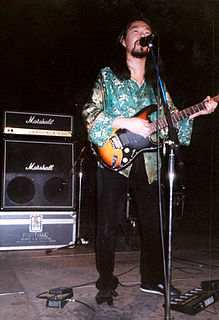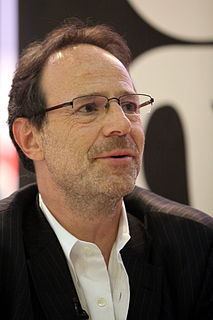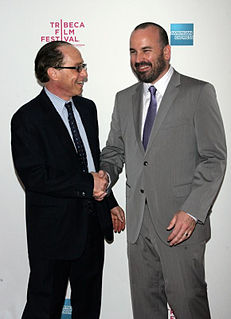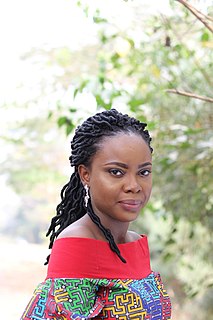A Quote by Ben Fountain
I think I was lucky to come of age in a place and time - the American South in the 1960s and '70s - when the machine hadn't completely taken over life. The natural world was still the world, and machines - TV, telephone, cars - were still more or less ancillary, and computers were unheard of in everyday life.
Related Quotes
Computers are still technology because we are still wrestling with it: it's still being invented; we're still trying to work out how it works. There's a world of game interaction to come that you or I wouldn't recognise. It's time for the machines to disappear. The computer's got to disappear into all of the things we use.
We are too much in the machine world today. Even here in Tuva we've got every year more and more cars and other technologies, and of course it brings more pollution to our air, to nature. And I think the idea of the Kraftwerk song is people should not be very much mechanized or to be a machine in the world of machines. The idea is to try to find a golden middle between the world of nature and the world of machines.
I think I was lucky to be a little older when I became famous. But still, the shock of the world starting to treat you in a weird way... I had come from the army, where we had to deal with life or death, and suddenly, people were asking whether you were cool or not. I have never cared about whether I'm cool.
My mother died yesterday, yesterday many years ago. You know, what amazed me the most the next day after her leaving was the fact that the buildings were still in place, the streets were still full of cars running, full of people who were walking, seemingly ignoring that my whole world has just disappeared." (rough translation)
When I worked with General Electric, again this was soon after the Second World War, you know, I was keeping up with new developments and they showed me a milling machine and this thing worked by punch cards - that's where computers were at that time, and everybody was sort of sheepish about how well this thing worked because in those days machinists were treated as though they were great musicians because they were virtuosos on these machines.
Living through the 1929 Great Depression helped shape my social conscience. During this time, I realized the earth was still the same place, manufacturing plants were still intact, and resources were still there, but people didn’t have money to buy the products. I felt the rules of the game we play by were outmoded and damaging. This began a life-long quest resulting in the conclusions and designs presented in The Venus Project.
The Jetsons had them in the 1960s. They were the defining element of 'Knight Rider' in the 1980s: cars that drive themselves. Self-driving cars appear in countless science fiction movies. By Hollywood standards, they are so normal we don't even notice them. But in real life, they still don't exist. What if you could buy one today?
If the lost word is lost, if the spent word is spent If the unheard, unspoken Word is unspoken, unheard; Still is the spoken word, the Word unheard, The Word without a word, the Word within The world and for the world; And the light shone in the darkness and Against the Word the unstilled world still whirled About the center of the silent Word. Oh my people, what have I done unto thee. Where shall the word be found, where shall the word Resound? Not here, there is not enough silence
There are places in the world where it's easier than in the US to be a person who produces theory and not require the university for sustenance. And there are still places in the world where there is lively poetry communities largely divorced from academia. That's been destroyed in the US. In the US, famously, there were a lot of counter-spaces that lasted into the 60s and 70s, like the Black Arts Movement. They were systematically broken, often by the government, and the workshop arose in their place.
I'm still very interested in the things that happened in the '80s and the '70s because I think that they were very important years for Nigeria. In the '80s, we were under a military dictatorship for quite a while, and I think that the way we engage with our country as citizens was shaped in many ways by the events that took place in that time.





































